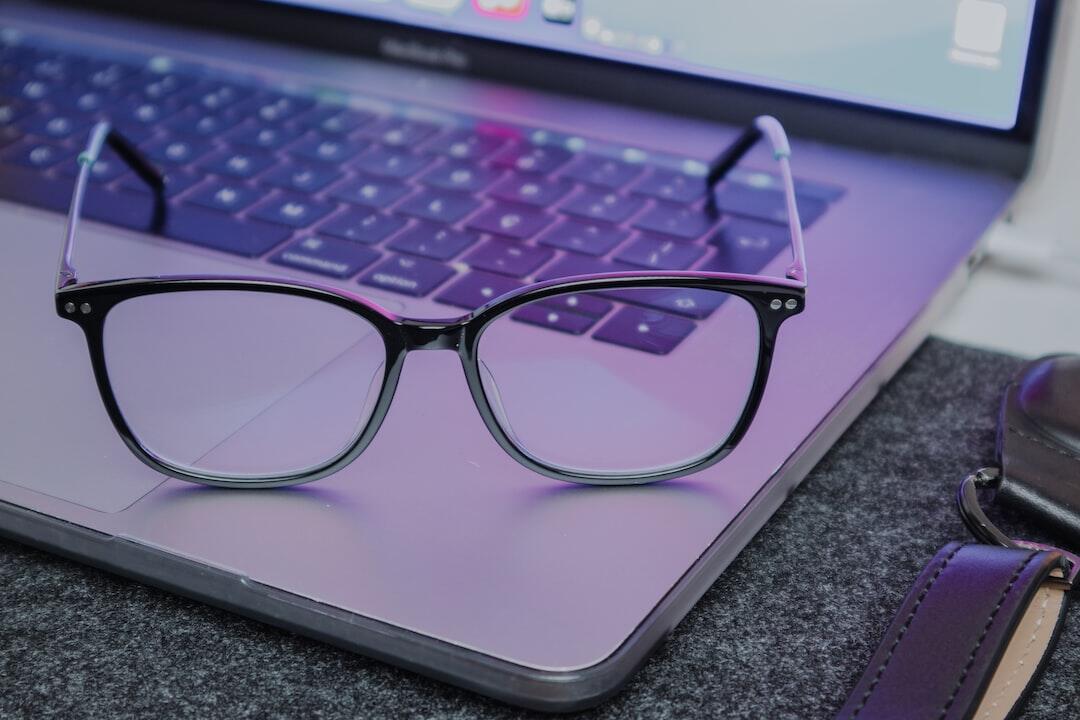Have you ever wondered why your eyes feel tired after looking at screens for a long time? You’re not alone.Many people spend hours each day using phones, tablets, and computers without knowing how this affects their eyes. A big reason for eye discomfort is something called blue light.This type of light is part of what makes screens so bright and clear, but it may also be affecting your eye health and sleep. In this post, you’ll learn how blue light works, how it affects your body, and what you can do to protect your vision every day.
Table of Contents
The Science Behind Blue Light
Blue light is a part of the visible light spectrum. It has shorter wavelengths and more energy than most other colors of light. You see it naturally in sunlight, but it’s also in digital screens like those on phones, TVs, and laptops.
Because blue light has high energy, your eyes work harder to deal with it. Scientists have studied how this light interacts with the human eye, and they’ve found that too much exposure can lead to problems with focus, sleep, and long-term eye health.
Digital Eye Strain and Blue Light
Spending many hours staring at a monitor can lead to digital eye strain. Also known as computer vision syndrome. Symptoms may include headaches, blurry vision, dry eyes, and trouble focusing.
One big reason for this strain is exposure to blue light. Your eyes are not very good at blocking this type of light, which means it passes through easily and reaches the back of your eye. When this happens all day, every day, your eyes can become tired and sore.
How Blue Light Affects Sleep Patterns
Blue light doesn’t just impact your eyes. It also affects your sleep. The body has something called a circadian rhythm, which is like a natural clock that tells you when to sleep and when to wake up.
Blue light can confuse this clock. It does this by stopping your brain from making melatonin, the hormone that helps you fall asleep. Watching a movie, reading on a tablet, or playing games before bed may keep your brain too active, even if you feel tired.
Can Blue Light Cause Long-Term Damage?
There is still a lot of research being done on this. Some studies suggest that too much blue light might harm the retina, which is the part of your eye that sends signals to your brain to help you see.
Protecting your eyes now can help keep your vision healthy as you grow older. This is especially true for people who use screens every day for school, work, or fun. Even though some eye experts still debate the full effects, they agree that taking breaks and using protection is smart.
The Role of Blue Light Glasses
You might have heard people asking, Are blue light glasses worth it? These glasses are made to filter out some of the blue light from screens. Many people say they feel less eye strain when they wear them, especially during long hours at a computer.
While they may not solve every problem, they can be helpful for those who work with screens often. Scientists continue to study how much they help, but early signs show that they may reduce eye discomfort and improve sleep. If you notice that your eyes get tired easily, trying a pair of blue light glasses could be a helpful step.
Ways to Protect Your Eyes
There are a few easy steps you can take to guard your eyes from too much blue light. One way is to follow the 20-20-20 rule. Every 20 minutes, look at something 20 feet away for at least 20 seconds.
This gives your eyes a break. You can also lower your screen brightness and use night mode settings that reduce blue light.
These small changes can help you feel more comfortable and sleep better. Many classics in eye care advice still work today-like resting your eyes and blinking often.
Are Children at Risk Too?
Yes, kids can be affected by blue light just like adults. In fact, their eyes might be even more sensitive. Many children today use tablets, computers, and phones for both school and play.
Since their eyes are still growing, too much screen time can cause more stress. Parents and teachers can help by setting screen time limits and encouraging breaks. Kids should also be reminded not to hold screens too close to their eyes.
What Science Still Doesn’t Know
Even though we know a lot about blue light, there’s still more to learn. Some researchers say we need more long-term studies to understand if blue light leads to serious damage over many years. Right now, we know it affects sleep and causes digital strain, but it’s not clear if it leads to permanent eye problems.
That’s why many experts suggest being careful, especially if you use screens a lot. You don’t have to stop using your devices, but it’s smart to balance your screen time and take care of your eyes.
Connection Between Screens and Eye Health
Our modern lives depend on screens, from school and work to movies and games. But with more screen time comes more responsibility to care for our eyes. Blue light is just one piece of the puzzle, but it’s an important one.
Eye doctors now see more people with tired eyes, especially since screen use has gone up. Learning about how blue light works and how to limit your exposure can help you keep your eyes healthy and strong.
Understanding Blue Light Matters
Blue light affects many parts of our health, not just our eyes. It changes how we sleep, how we focus, and how we feel during the day. Learning about it helps us make smart choices about how we use screens.
Whether you’re doing schoolwork, reading the classics, or playing games, it’s important to know how to protect yourself. As technology keeps changing, new tools may come out to help even more. But for now, being aware of blue light and its effects is a great place to start.
Protecting Your Vision Starts Now
Taking care of your eyes is more important than ever. Blue light is a part of daily life, but that doesn’t mean it has to harm your health. By understanding how it works and how it affects your sleep and vision, you can take smart steps to protect yourself.
Your eyes are valuable, and a little care goes a long way. Did this guide help you? Browse the rest of this section for more advice on a variety of topics.

































































